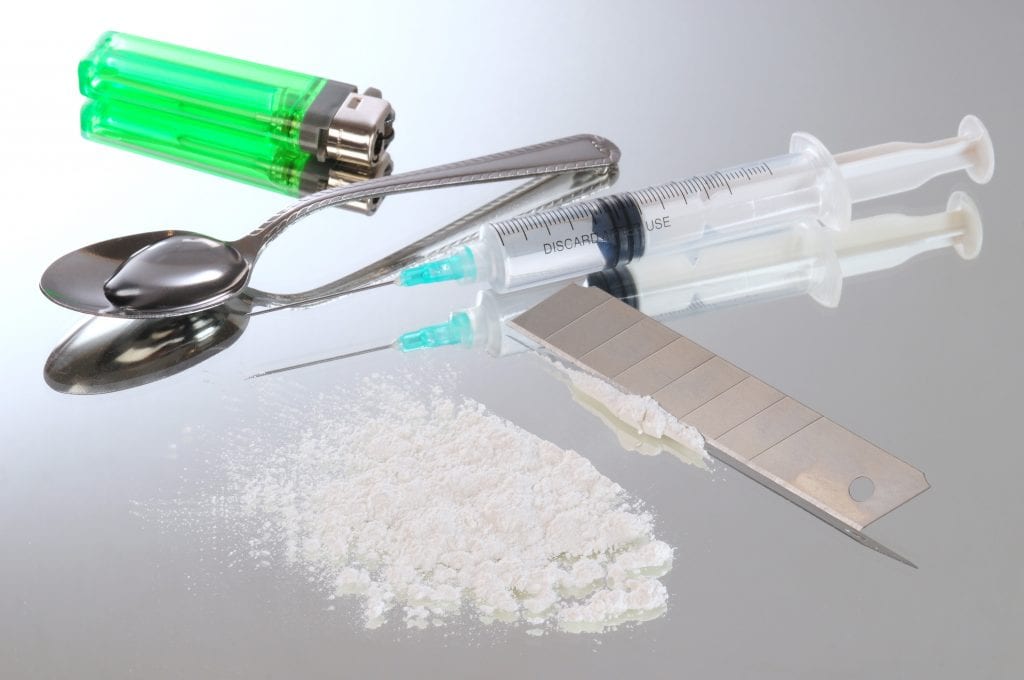
heroin is highly addictive, and it’s easy for users to misjudge and overdose.
Doug Chapman, a sergeant with the Shiawassee County Sheriff’s Department, and his long-time partner, Molly are the couple behind a campaign to change state law. Specifically, the part of state legislation that deals with allowing family members and loved ones to intervene when someone is struggling with addiction.
Molly’s daughter, who Chapman served as a father figure to for years, recently died of a heroin overdose. Meghan Reid, who is described as having come from a loving, close knit family, and having aspirations to become a nurse, instead developed a heroin addiction. Although she made half-hearted attempts at getting clean, heroin’s hold on her was just too strong. She was found dead on October 30, 2016, of a heroin overdose.
In an address he made to the Shiawassee County Drug Court, which was covered by MLive, sergeant Chapman explained that the loss of Meghan’s life was a tragedy that should never have happened. He said that he discovered that her boyfriend was a heroin user, but when he confronted her about it, she denied having anything to do with it. That denial carried over into the entire family.
According to Sgt. Chapman, “The entire family was in complete denial. No one thought this could happen to Meghan.” But it didn’t take long for Chapman to realize the truth. Meghan was spending more and more time in the bathroom. When Chapman searched the bathroom, he began to find used needles and other drug paraphernalia. Yet when they tried to address the issue with Meghan, she claimed she had it under control.
Chapman feels very strongly that Meghan would still be here if he and Reid had been able to force her to participate in some kind of drug rehabilitation. “Everyone that I have spoken to that was addicted, they told me that if (treatment) wasn’t forced upon them, they would have never been able to get away from it. I know this is going to be long, hard road, but if someone doesn’t do something now, we are going to lose a lot of our loved ones.”
The new legislation would allow family members to force addicts into rehab.
Chapman and Reid are hoping that they can raise awareness, and ultimately change Michigan law in this area. Ultimately, they are pushing for legislation that will allow family members to force those who are struggling with addiction into treatment, even if they don’t want to go. “We have to be able, as loved ones, to do something!” Chapman insists. They have started a Facebook page called Meghan’s ARMY (Addiction, Recovery, Movement 4 Youth), which they hope will raise awareness of the heroin epidemic.
In an article published in the Observer, Dr. Mark Calarco raises the question whether the reason we are struggling to overcome opioid addiction is because our perspective on the subject is incorrect. Calarco, the national medical director of American Addiction Centers, is a leader in drug and alcohol abuse treatment, and a firm believer in the fact that in order to conquer this pandemic, we need to change the way we view it.
In his article, he quotes Dr. Tom Frieden, director of Centers for Disease Control and Prevention, who also wrote on the subject of opioid addiction earlier this year. “Although the opiate epidemic is fueled by a number of different elements, the underlying factor for most people is addiction, yet the term “opiate addiction” is a bit of a misnomer. Addiction itself is a brain illness, not a result of opioid use, and until we shift our collective perception of the disease, we won’t make a dent in the opioid epidemic.“
Join us next time, as we look at how our collective perspective on drug addiction has helped to fuel, rather than overcome, the epidemic we are currently facing. Perhaps through education and awareness, we can finally make some strides toward conquering these deadly addictions once and for all.
Until then, if you need help for a criminal charge related to drug use, or the sale or manufacture of drugs, in Michigan, contact us immediately. Drug charges are serious and can result in many years in prison if not handled properly. However, that doesn’t have to be your story. Call us at 866-766-5245. Our experienced drug crime defense attorneys are here to help you.





